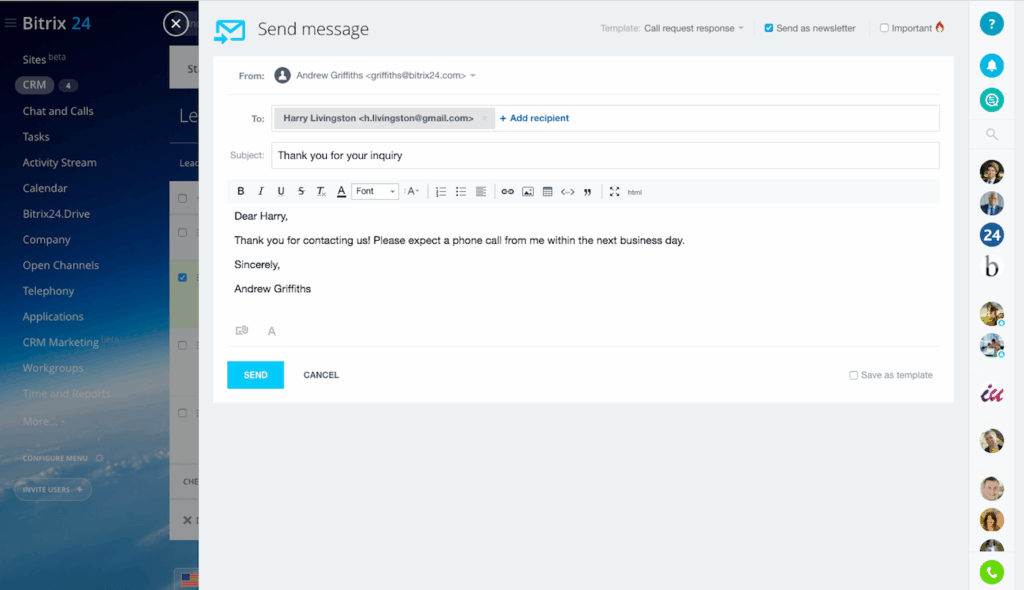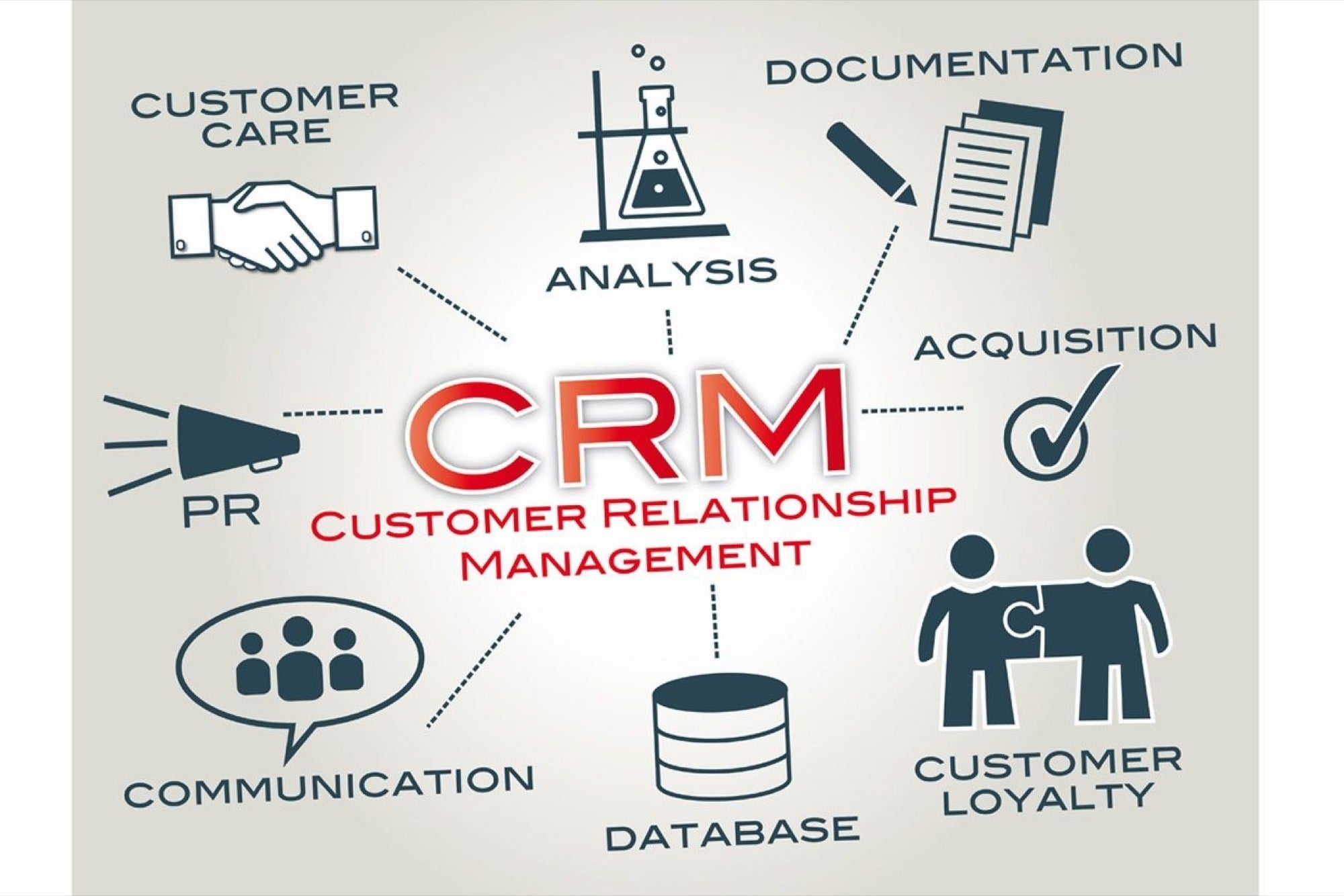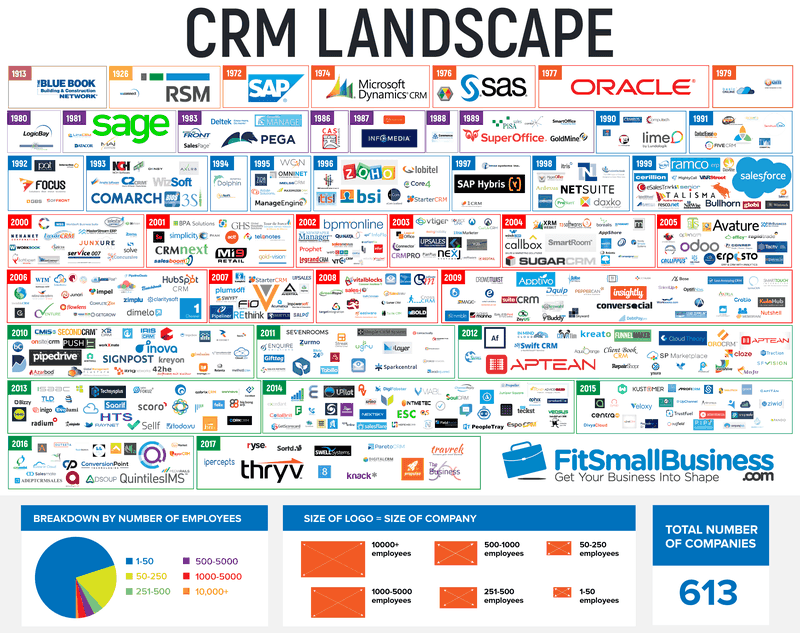
Introduction: Why Your Small Business Needs a CRM
So, you’re a small entrepreneur, brimming with ideas, passion, and the drive to make your mark. You’re juggling a million things – from perfecting your product or service to navigating the financial tightrope. In this whirlwind, one crucial element often gets overlooked: your customer relationships. This is where a Customer Relationship Management (CRM) system steps in, becoming your secret weapon for sustainable growth.
Think of a CRM not just as software, but as a central hub for all your customer interactions. It’s where you store contact information, track communications, manage sales pipelines, and analyze customer data. In essence, it’s the backbone of your customer-centric strategy. For small entrepreneurs, a well-chosen CRM can be the difference between surviving and thriving. It empowers you to:
- Boost Sales: Streamline your sales process, identify promising leads, and close deals faster.
- Enhance Customer Satisfaction: Provide personalized service, anticipate customer needs, and resolve issues promptly.
- Improve Efficiency: Automate repetitive tasks, freeing up your time to focus on strategic initiatives.
- Gain Valuable Insights: Analyze customer behavior, identify trends, and make data-driven decisions.
- Scale Your Business: Build a solid foundation for growth by managing your customer relationships effectively.
But with a plethora of CRM options available, choosing the right one can feel overwhelming. This comprehensive guide will walk you through the best CRM systems tailored for small entrepreneurs, helping you make an informed decision that aligns with your unique needs and budget.
What to Look for in a CRM for Small Entrepreneurs
Before diving into specific CRM recommendations, let’s establish the essential features and considerations for small business owners. The ideal CRM should be:
- User-Friendly: Intuitive interface and easy navigation are paramount. You don’t want to spend weeks learning how to use the software.
- Affordable: Pricing should be competitive and scalable, adapting to your business’s growth. Free or low-cost options are often a great starting point.
- Scalable: The CRM should grow with your business, accommodating increasing data volume and feature needs.
- Mobile-Friendly: Access and manage your CRM data on the go, ensuring you stay connected with your customers from anywhere.
- Integration Capabilities: Seamless integration with other tools you use, such as email marketing platforms, accounting software, and social media channels.
- Reporting and Analytics: Robust reporting features to track key performance indicators (KPIs) and gain insights into your customer relationships.
- Contact Management: Efficiently store, organize, and manage customer contact information, including names, addresses, phone numbers, and email addresses.
- Sales Pipeline Management: Visualize and manage your sales process, from lead generation to deal closure.
- Automation: Automate repetitive tasks, such as email follow-ups and appointment scheduling, to save time and improve efficiency.
- Customer Support: Reliable customer support and comprehensive documentation to assist you with any issues or questions.
Keeping these factors in mind, let’s explore some of the best CRM systems for small entrepreneurs.
Top CRM Systems for Small Entrepreneurs
1. HubSpot CRM: The All-in-One Solution
Why it’s great: HubSpot CRM is a powerhouse that offers a robust free plan, making it a compelling choice for startups and small businesses on a budget. It’s incredibly user-friendly and provides a comprehensive suite of features, including contact management, deal tracking, email marketing, and sales automation. The free version is surprisingly generous, allowing you to manage a significant number of contacts and access essential tools. As your business grows, you can easily upgrade to paid plans for advanced features like advanced reporting, marketing automation, and custom objects.
Key Features:
- Free Forever Plan: A generous free plan that includes contact management, deal tracking, and email marketing.
- User-Friendly Interface: Easy to navigate and learn, even for non-technical users.
- Sales Automation: Automate tasks like email follow-ups and appointment scheduling.
- Email Marketing: Create and send professional email campaigns.
- Reporting and Analytics: Track key performance indicators (KPIs) and gain insights into your sales performance.
- Integration: Seamless integration with other HubSpot tools and popular third-party applications.
Pros:
- Completely free plan available with a lot of functionality.
- Excellent user interface and ease of use.
- Comprehensive set of features.
- Strong integration capabilities.
Cons:
- The free plan has limitations on the number of contacts and features.
- Advanced features are only available in paid plans.
Pricing: HubSpot CRM offers a free plan, with paid plans starting at a reasonable price point based on the features and contacts you require.
2. Zoho CRM: Feature-Rich and Customizable
Why it’s great: Zoho CRM is a versatile and highly customizable CRM system that caters to businesses of all sizes. It offers a wide range of features, including sales force automation, marketing automation, customer support, and analytics. Zoho CRM stands out for its affordability and flexibility, allowing you to tailor the platform to your specific business needs. It’s a great choice if you need a comprehensive CRM solution that can adapt to your evolving requirements. They offer a free plan with limited features, and affordable paid plans.
Key Features:
- Sales Force Automation: Streamline your sales process with lead management, deal tracking, and sales forecasting.
- Marketing Automation: Automate marketing campaigns and nurture leads.
- Customer Support: Manage customer inquiries and provide excellent customer service.
- Customization: Highly customizable to fit your specific business processes.
- Mobile App: Access your CRM data on the go with the Zoho CRM mobile app.
- Integration: Integrates with a wide array of third-party applications.
Pros:
- Feature-rich and versatile.
- Highly customizable.
- Affordable pricing.
- Strong integration capabilities.
Cons:
- The user interface can be overwhelming for some users.
- The free plan has limited features.
Pricing: Zoho CRM offers a free plan, with paid plans starting at a competitive price point, making it accessible for small businesses.
3. Freshsales: Intuitive and Sales-Focused
Why it’s great: Freshsales, by Freshworks, is a user-friendly CRM designed with sales teams in mind. It’s known for its intuitive interface, making it easy for sales reps to quickly adopt and use. Freshsales offers features like lead scoring, built-in phone and email, and advanced reporting. It’s a great option if you want a CRM that simplifies the sales process and helps your team close deals faster. They offer a free plan and affordable paid options.
Key Features:
- Lead Scoring: Prioritize leads based on their behavior and engagement.
- Built-in Phone and Email: Make calls and send emails directly from the CRM.
- Sales Automation: Automate repetitive sales tasks.
- Advanced Reporting: Track key sales metrics and gain insights into your performance.
- User-Friendly Interface: Easy to navigate and learn.
Pros:
- User-friendly and intuitive interface.
- Sales-focused features.
- Built-in phone and email.
- Affordable pricing.
Cons:
- The free plan has limited features.
- Some advanced features are only available in higher-tier plans.
Pricing: Freshsales offers a free plan and affordable paid plans tailored to different business needs.
4. Pipedrive: The Sales Pipeline Powerhouse
Why it’s great: Pipedrive is a sales-focused CRM that excels at visualizing and managing your sales pipeline. It’s known for its intuitive interface and its ability to help sales teams stay organized and close deals. Pipedrive focuses on sales activities, making it easy to track your progress and identify areas for improvement. It’s a great choice if you need a CRM that simplifies your sales process and helps you stay on top of your deals. They offer a free trial and paid plans.
Key Features:
- Visual Sales Pipeline: Visualize your sales process and track deals through each stage.
- Activity Tracking: Stay organized with tasks, calls, and emails.
- Deal Management: Manage deals and track their progress.
- Reporting and Analytics: Track key sales metrics and gain insights into your pipeline.
- Mobile App: Access your CRM data on the go.
Pros:
- Intuitive and easy-to-use interface.
- Excellent sales pipeline management.
- Focus on sales activities.
Cons:
- Less emphasis on marketing automation.
- The free trial is limited.
Pricing: Pipedrive offers a free trial and paid plans that are priced based on the number of users and the features needed.
5. Agile CRM: All-in-One CRM for Small Businesses
Why it’s great: Agile CRM provides a comprehensive suite of features, including sales, marketing, and service automation, at an affordable price. It is particularly well-suited for small businesses that want an all-in-one solution. It offers a user-friendly interface and a wide range of integrations. Agile CRM is an excellent choice if you need a complete CRM package that streamlines your entire customer journey. They provide a free plan and several paid options, making it accessible for different business scales.
Key Features:
- Sales Automation: Automated sales processes, workflows, and deal tracking.
- Marketing Automation: Email marketing, lead scoring, and marketing campaign management.
- Customer Service: Help desk, live chat, and ticket management.
- Contact Management: Centralized contact database with detailed information.
- Integration: Integrations with popular apps like Gmail, Outlook, and more.
Pros:
- All-in-one CRM solution.
- Comprehensive feature set.
- Affordable pricing.
- User-friendly interface.
Cons:
- The free plan has limitations.
- Some users find the interface a bit complex at first.
Pricing: Agile CRM has a free plan for a limited number of users, with paid plans that offer more features and users at a competitive price.
Choosing the Right CRM: A Step-by-Step Guide
Selecting the perfect CRM for your small business is a process that requires careful consideration. Here’s a step-by-step guide to help you make the right choice:
- Assess Your Needs: Start by identifying your specific business needs and goals. What are your pain points? What features are essential for your success? Consider your sales process, marketing strategies, and customer service requirements.
- Define Your Budget: Determine how much you’re willing to spend on a CRM system. Factor in the cost of the software, any necessary training, and potential add-ons.
- Research CRM Options: Explore the various CRM systems available, paying attention to their features, pricing, and reviews. Read case studies and compare different options.
- Create a Shortlist: Narrow down your options to a shortlist of 2-3 CRM systems that best fit your needs and budget.
- Request Demos and Trials: Request demos or sign up for free trials to test out the shortlisted CRM systems. This will allow you to experience the software firsthand and determine if it’s a good fit.
- Consider Integration: Ensure that the CRM system integrates with the other tools you use, such as email marketing platforms, accounting software, and social media channels.
- Evaluate User-Friendliness: The CRM system should have an intuitive interface and be easy to navigate. The easier it is to use, the more likely your team will adopt it.
- Check Customer Support: Verify that the CRM system offers reliable customer support and comprehensive documentation to assist you with any issues.
- Make a Decision: Based on your research, demos, and trials, choose the CRM system that best meets your needs and budget.
- Implement and Train: Implement the CRM system and train your team on how to use it effectively. This will ensure that everyone is on board and can leverage the system to its full potential.
Maximizing Your CRM Investment: Best Practices
Once you’ve chosen a CRM, it’s crucial to implement it effectively to maximize your investment. Here are some best practices to follow:
- Data Import and Organization: Import your existing customer data into the CRM and organize it logically. Ensure data accuracy and completeness.
- Customization: Customize the CRM to fit your specific business processes. Tailor the fields, workflows, and reports to align with your needs.
- Training and Adoption: Train your team on how to use the CRM effectively. Encourage adoption by highlighting the benefits and providing ongoing support.
- Data Entry and Maintenance: Establish clear processes for data entry and maintenance. Regularly update customer information and remove outdated data.
- Automation: Leverage automation features to streamline your sales, marketing, and customer service processes.
- Reporting and Analysis: Use the CRM’s reporting and analytics features to track key performance indicators (KPIs) and gain insights into your customer relationships.
- Integration: Integrate the CRM with other tools you use, such as email marketing platforms, accounting software, and social media channels.
- Regular Review: Regularly review your CRM usage and performance. Identify areas for improvement and make adjustments as needed.
- Stay Updated: Stay up-to-date with the latest CRM features and updates. Take advantage of new functionalities to optimize your processes.
Conclusion: Embracing CRM for Small Business Success
In the competitive landscape of today’s business world, a Customer Relationship Management (CRM) system is no longer a luxury; it’s a necessity. For small entrepreneurs, it represents a powerful tool for building strong customer relationships, streamlining operations, and driving sustainable growth.
By choosing the right CRM system, you can empower your team to work smarter, not harder. You can gain valuable insights into your customers’ needs and preferences, allowing you to tailor your products, services, and marketing efforts for maximum impact. You can automate repetitive tasks, freeing up your time to focus on strategic initiatives and innovation.
This guide has provided you with a comprehensive overview of the best CRM systems for small entrepreneurs, along with a step-by-step guide to help you choose the right one. Remember to assess your needs, define your budget, and research your options carefully. Take advantage of free trials and demos to experience the software firsthand.
Once you’ve selected your CRM, be sure to implement it effectively and follow best practices to maximize your investment. Train your team, customize the system to fit your needs, and regularly review your performance.
By embracing CRM, you’re not just investing in software; you’re investing in the future of your business. You’re building a foundation for long-term success by putting your customers at the center of everything you do. So, take the leap, choose the right CRM, and unlock the potential of your small business. The journey to customer-centric excellence starts now!



